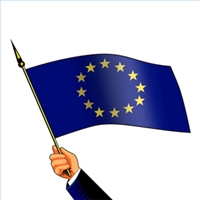
This article was last updated on April 16, 2022
Canada: ![]() Oye! Times readers Get FREE $30 to spend on Amazon, Walmart…
Oye! Times readers Get FREE $30 to spend on Amazon, Walmart…
USA: ![]() Oye! Times readers Get FREE $30 to spend on Amazon, Walmart…
Oye! Times readers Get FREE $30 to spend on Amazon, Walmart…
 There is a flurry of activity in the financial corridors of Europe as the deadline of March 20 approaches when payment 14,5 bln. euro on Greece’s debt is due. Before releasing any further assistance, Europe and the IMF have forced the Greeks to accept an austerity package, aimed to convince financial markets to continue buying Greek bonds. At the same time financial parties are speculating on an ultimate Greek default. One of those speculators is Goldman Sachs. The same bank that advised Greece on the way to manipulate itself into the euro zone, pocketing US $ 500 mln in the process. All of course within the boundaries of the law. The social consequences of the package are horrible and, according to some, the implementation of the plan is bound to fail, and contamination of other countries in the euro zone must be feared.
There is a flurry of activity in the financial corridors of Europe as the deadline of March 20 approaches when payment 14,5 bln. euro on Greece’s debt is due. Before releasing any further assistance, Europe and the IMF have forced the Greeks to accept an austerity package, aimed to convince financial markets to continue buying Greek bonds. At the same time financial parties are speculating on an ultimate Greek default. One of those speculators is Goldman Sachs. The same bank that advised Greece on the way to manipulate itself into the euro zone, pocketing US $ 500 mln in the process. All of course within the boundaries of the law. The social consequences of the package are horrible and, according to some, the implementation of the plan is bound to fail, and contamination of other countries in the euro zone must be feared.In the meantime Europe is muddling through, forgoing its economic potential to solve the crisis by a structural reform of the monetary system, that would allow the issuing of European bonds. This muddling through is a process very familiar to most European politicians, sometimes forced by the local political situation as e.g. in The Netherlands. “More Europe” as a consequence of structural reforms would definitively be the end of the present Dutch minority government coalition. As such that would be a minor disaster, compared to the present gambling with the prosperity of millions of Europeans.
One of the most shocking aspects of the present situation is the way private financial institutions are working against a solution of the problems. While banks are forced on the one hand to write off a large part of their Greek bond holdings, at the same time those and other financial institutions are trying to force Greece into a default in order to cash in on their short positions. They cannot be bothered by the social consequences. This is one of the worst excesses of unregulated capitalism and a better case for further regulation is hardly to be found.
In the beginning of March the Dutch parliament will start its discussions on the results of the investigation into the banking crisis. CEO’s of those institutions have already voiced that a separation between their investment activities and general banking would leave them “too small to operate” and undermine their international position. This opinion fails to convince as Dutch society cannot be exposed again to the whims of bankers. Despite the fact that in The Netherlands no less than five Governance Codes are in place, to which many organizations, including private corporations and banks have voluntarily subscribed, disaster was around the corner.
None of those Governance Codes were transferred into law, as it was presumed that CEO’s would act socially responsible and in line with the codes. After the Dutch taxpayers had to bail out ING and nationalize ABN-AMRO, both “too big to fail”, this perception has changed. Let us forget about voluntary codes of conduct but create strong countervailing powers. The neo-liberal notion that markets have a self cleaning capacity that will ultimately benefit the consumer should also be forgotten. This is only economic theory, but in the real world perfect markets do not exist, as even Mr. Greenspan had to admit.
Click HERE to read more from Oye! Times.
Article viewed on Oye! Times at www.oyetimes.com
You can publish this article on your website as long as you provide a link back to this page.

Be the first to comment